Company Law: Incorporation Analysis for a Second-Hand Book Shop
VerifiedAdded on 2023/06/03
|6
|1612
|162
Report
AI Summary
This report provides an analysis of the advantages and disadvantages of incorporating a business in Australia, with specific advice for Nicola and May, who are partners in a second-hand book shop. It discusses the concept of separate legal entity, limited liability, and perpetual succession as key benefits of incorporation, while also addressing the disadvantages such as regulatory compliance and incorporation costs. The report recommends incorporating as a proprietary company due to its simpler legal compliance and the ability to limit the number of members, ensuring that Nicola and Mary can expand their business while mitigating potential liabilities. Additionally, the report addresses a scenario involving Zio Pty Ltd, where the constitution of the company and the rights of a company solicitor are examined, concluding that Claire, the solicitor, has the legal right to challenge her termination without a special resolution. Desklib offers a wealth of similar solved assignments and study resources for students.
1 out of 6
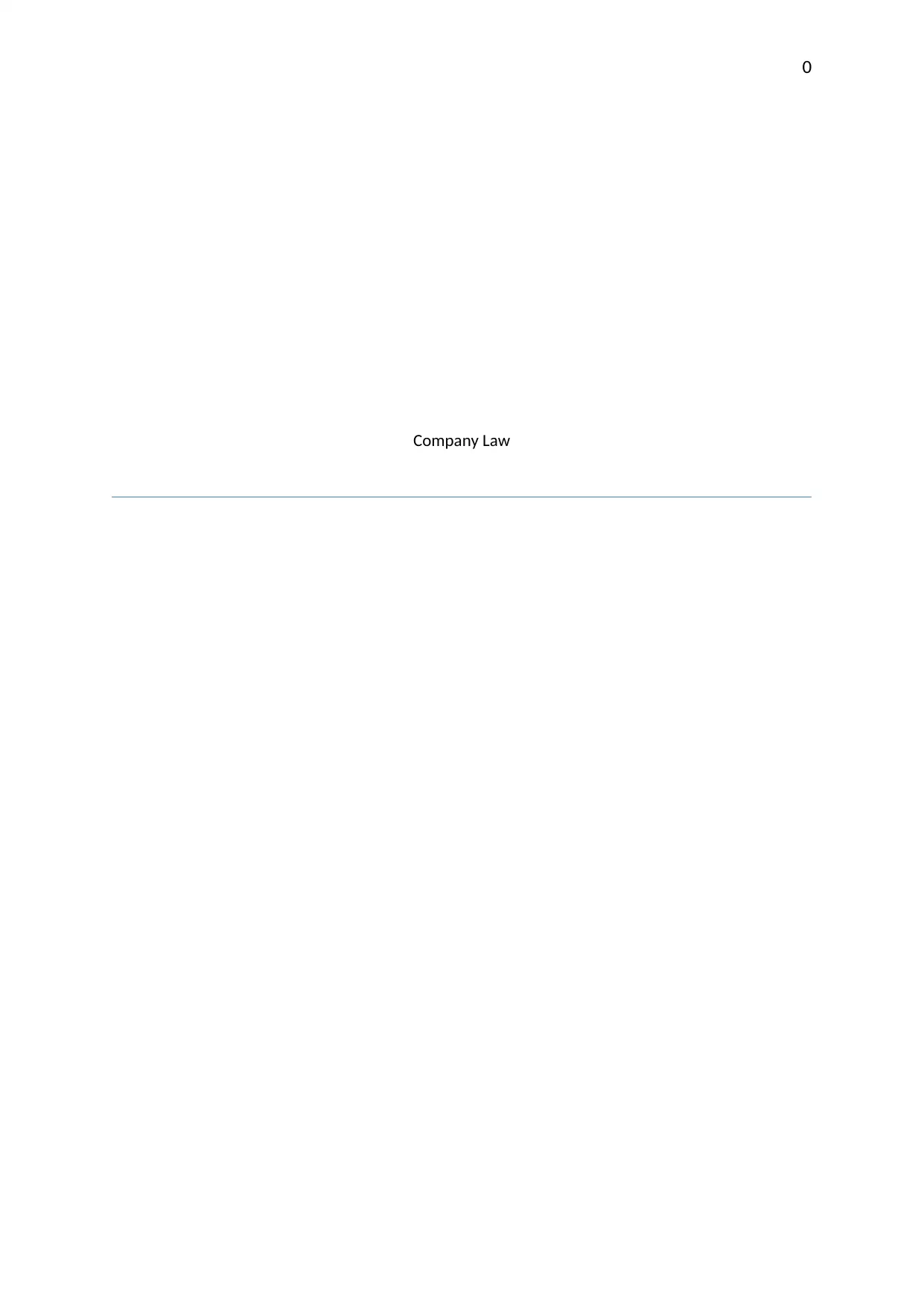
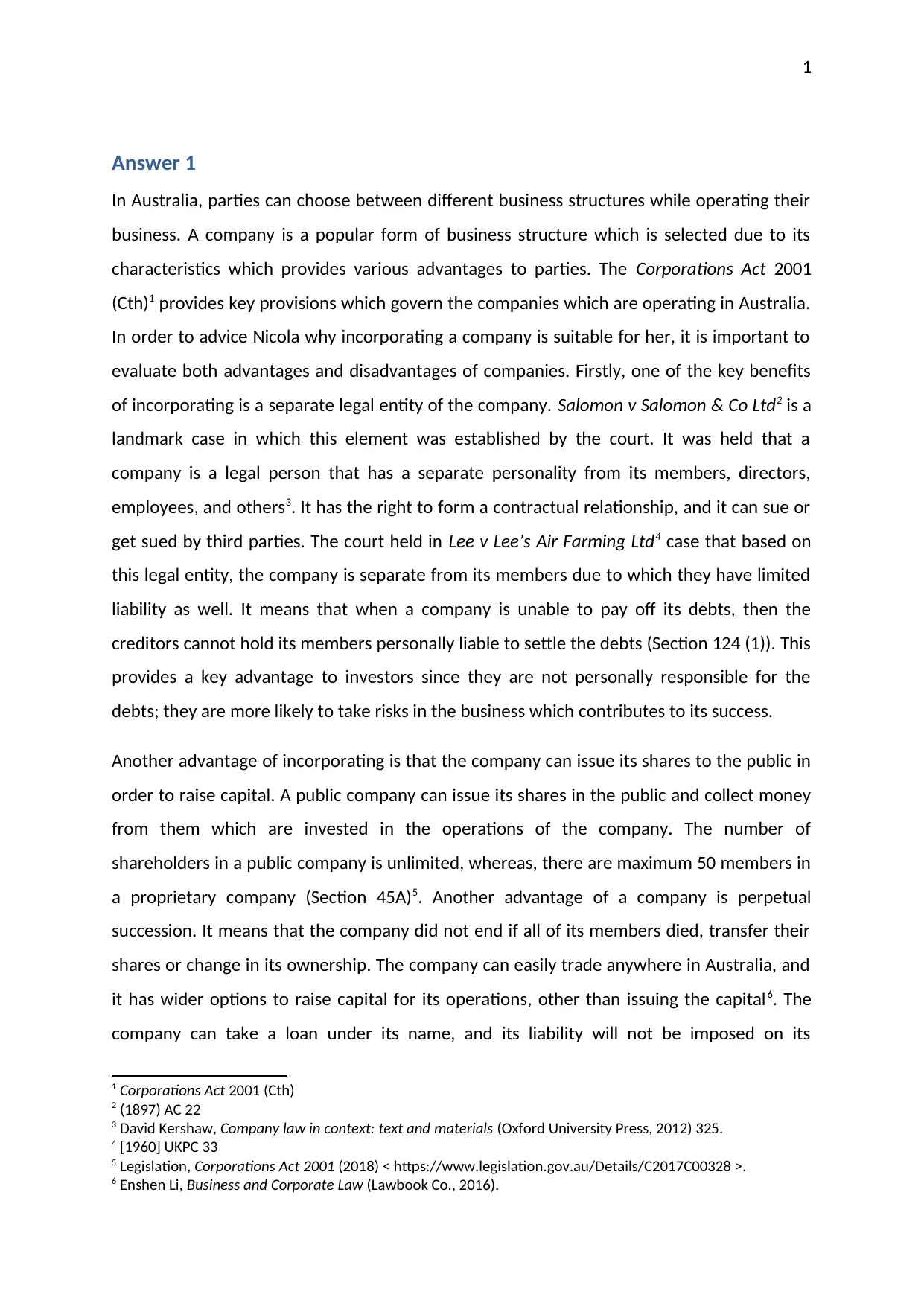
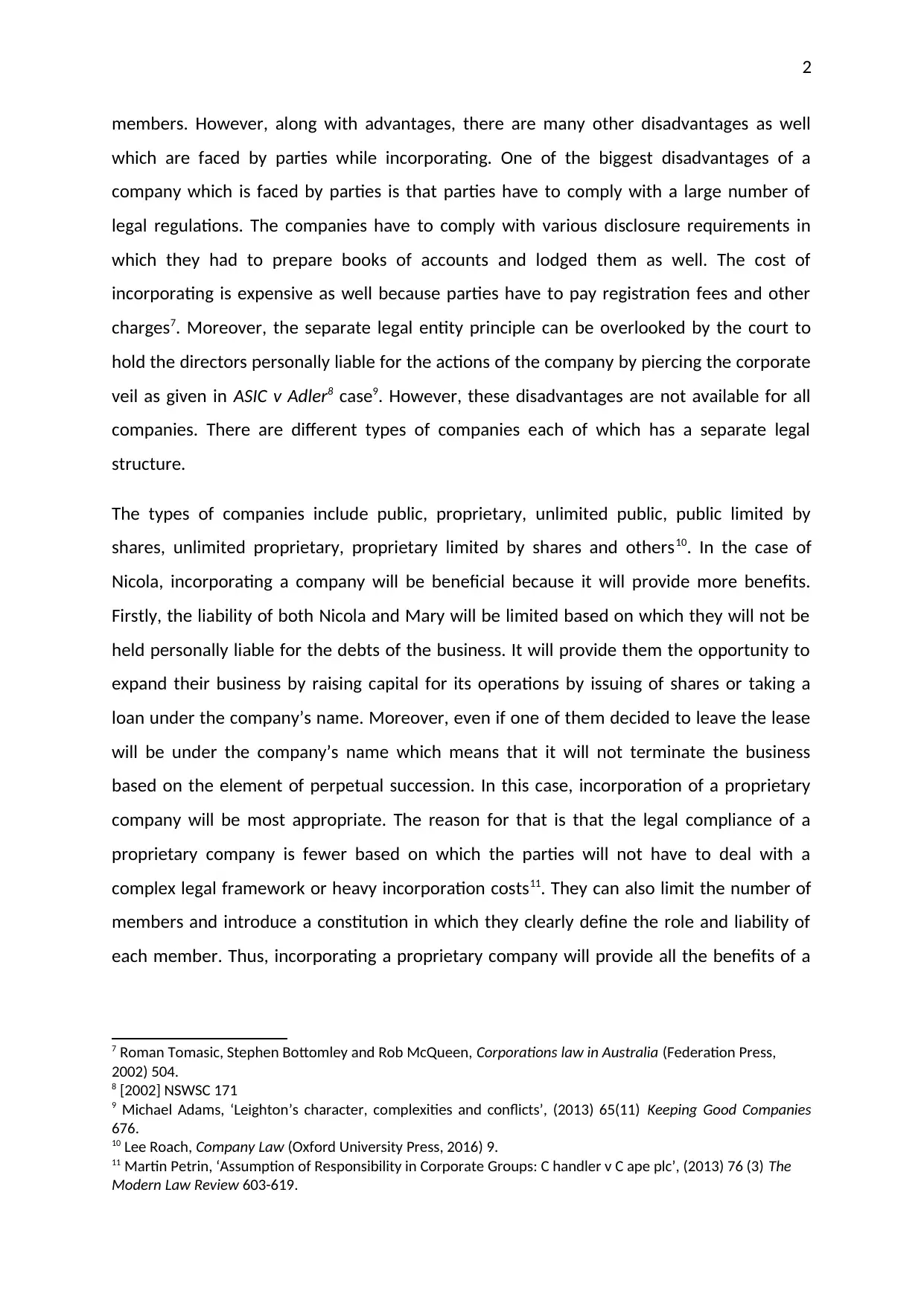
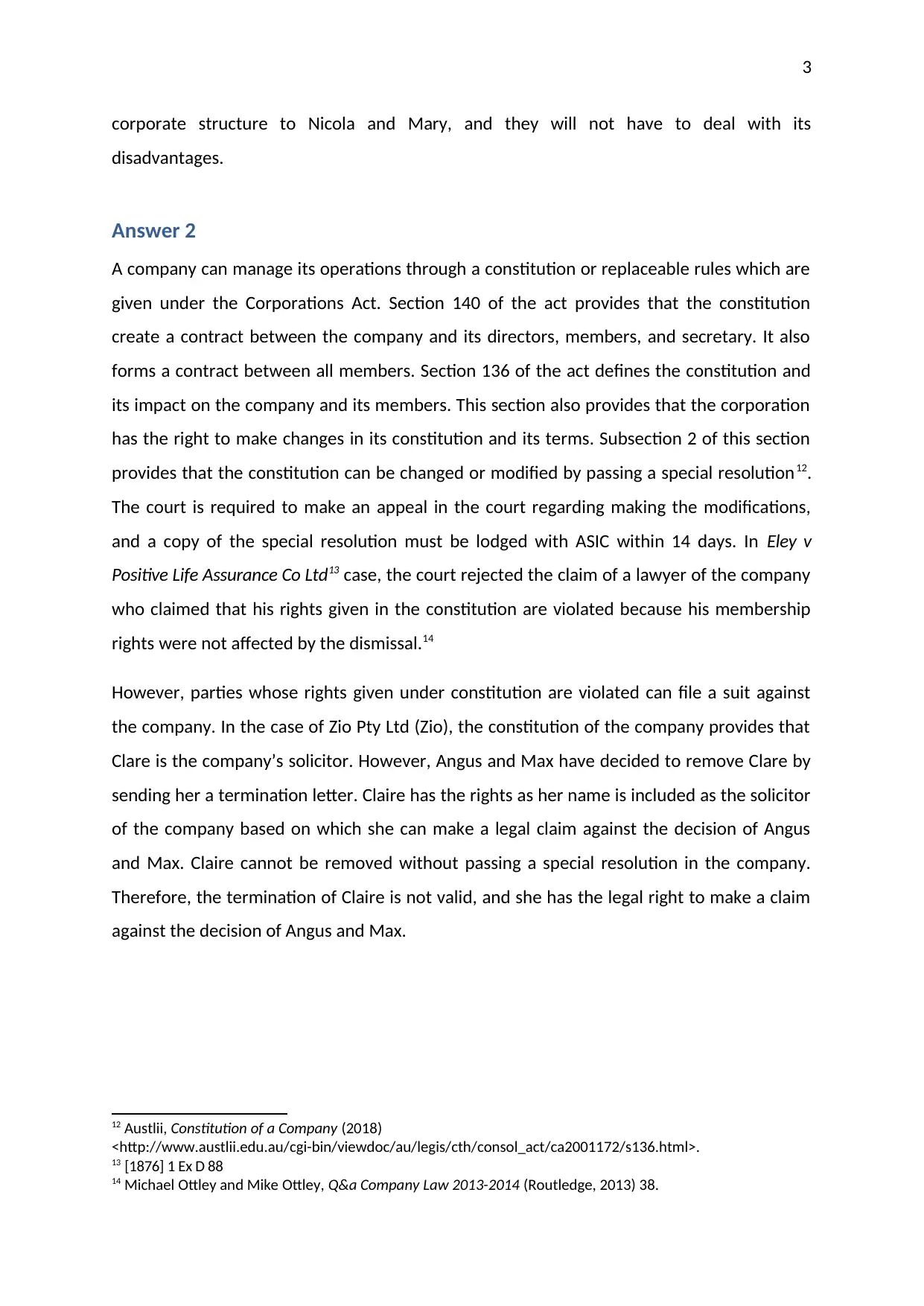
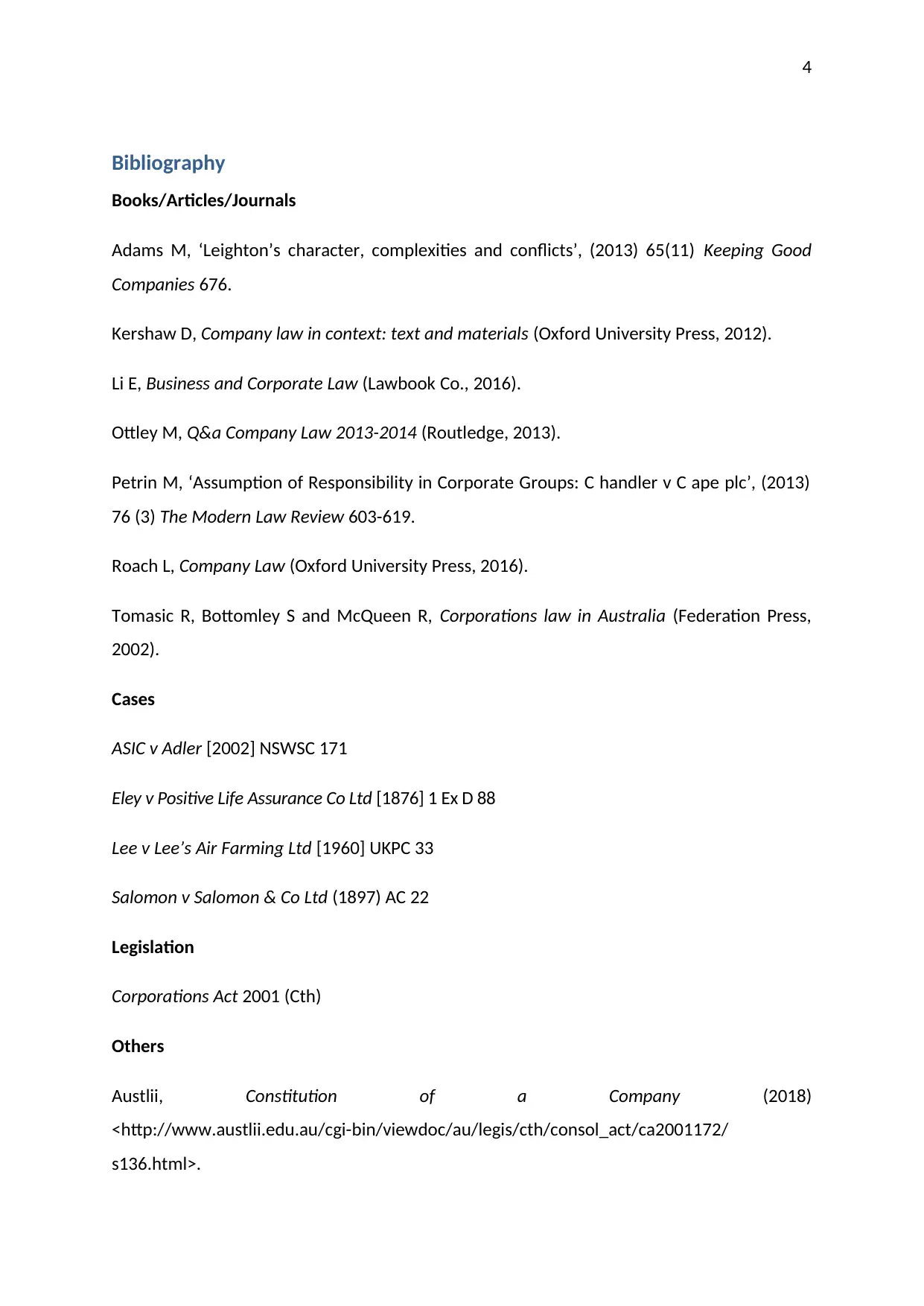







![[object Object]](/_next/static/media/star-bottom.7253800d.svg)